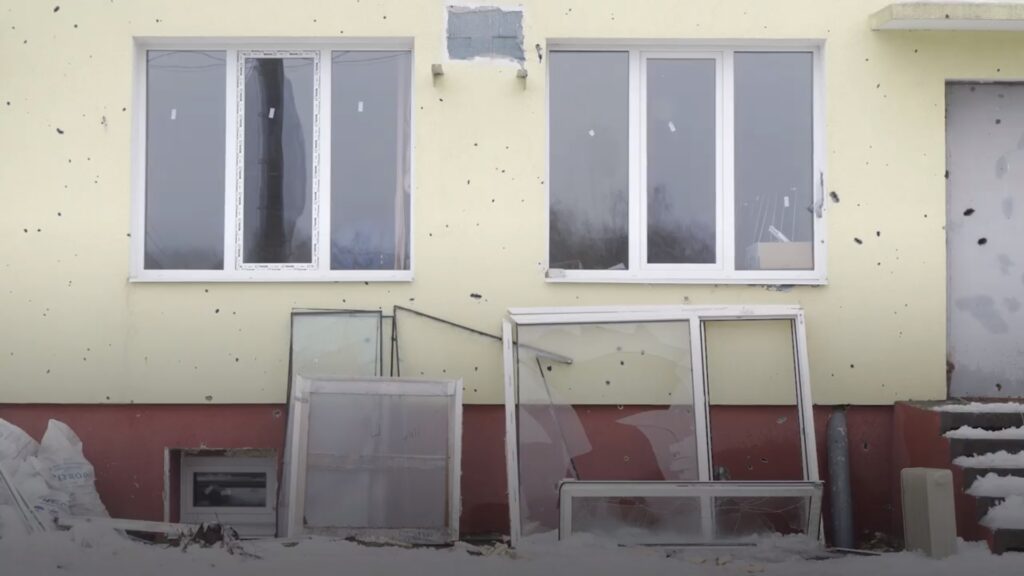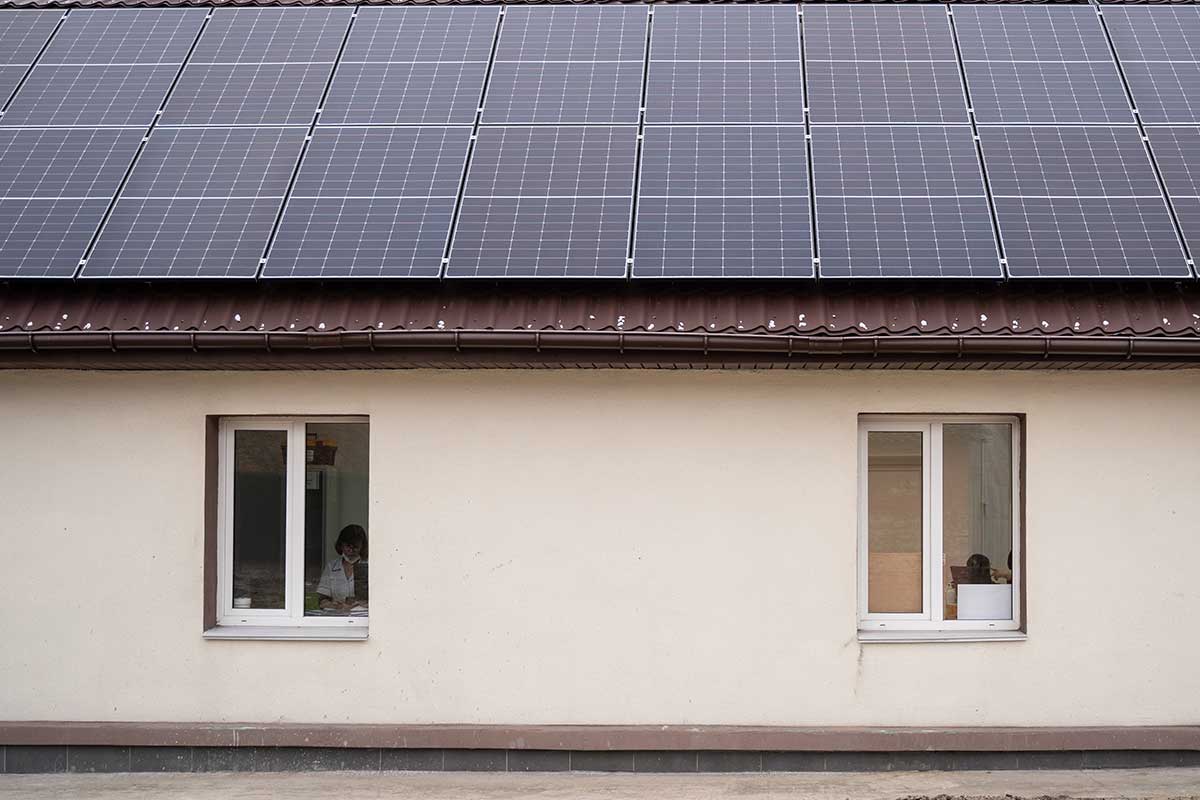In the outpatient clinic of the village of Horenka, in the Kyiv region, a ground-water heat pump and a solar power plant were put into operation. This is the first medical facility in the area where such an energy-efficient system is installed, and it should become an example of green reconstruction of the country.
The rebuilding of the heating system according to the principles of green reconstruction will make it possible to increase the energy efficiency of the outpatient clinic, reduce CO2 emissions and the negative impact on the environment, as well as reduce heating costs by 80 % (almost a quarter of a million UAH per year). Due to the solar plant, the hospital will become an electricity producer and can cover up to 60 % of its needs.
At the beginning of the full-scale war, a shell hit the yard of the outpatient clinic in Horenka. The blast wave knocked out windows and damaged the facade and roof of the building. Due to the lack of electricity during the cold days at the end of February 2022, the heating system was badly damaged.

Damage caused to the outpatient clinic by Russian shelling. Photo by Greenpeace
For the outpatient clinic to be able to operate fully and more autonomously even during power outages and without a generator, the reconstruction of the heating and power supply system began in November 2022. Since January 2023, a heat pump with a capacity of 20 kW, a solar power plant with a capacity of 12 kW and a battery with a capacity of 8 kWh have been operating there.
Currently, heat pumps are one of the most modern and environmentally friendly ways of heating supply. The roof of the hospital was ideal for the installation of solar panels, which will power the critical elements of the outpatient clinic during the day and charge the battery in case of emergency or scheduled power outages. Over time, the power plant can be expanded to ensure full energy independence for the outpatient clinic.
‘Renewable energy technologies, together with energy efficiency measures, similar to those applied in Horenka, should not be one-off projects, but the basis of the reconstruction of both Ukrainian buildings and our energy system. After all, decentralised generation from renewable sources allows manufacturers to save money and have a more stable energy supply. In turn, for the state it will help to develop a more reliable energy system with less damage to the environment. Moreover, our research showed that people are ready for such changes: 84 % of the surveyed showed a positive attitude towards small-scale generation from renewable sources,’ comments Kostiantyn Krynytskyi, Head of the Energy Department of NGO Ecoaction, one of the co-organizers of the project.
The reconstruction cost of the heating system and installation of solar panels in Horenka amounted to aboutEUR 56,000. These costs will be fully repaid in 6-7 years due to savings on energy resources and the electricity production by the outpatient clinic itself.
The reconstruction in Horenka was initiated by Greenpeace Central and Eastern Europe as part of the “Greening the reconstruction of Ukraine by building city level partnerships” project and implemented in cooperation with NGOs Ecoaction, Ecoclub, Charitable Foundation Victory of Ukraine with the assistance of the Hostomel military administration and the Hostomel primary health care centre.
This article was prepared in the framework of the project “Closing the loop: a just energy transition designed by capitals and regions” with the financial support of the European Union. Its contents are the sole responsibility of NGO Ecoaction and do not necessarily reflect the views of the European Union.


